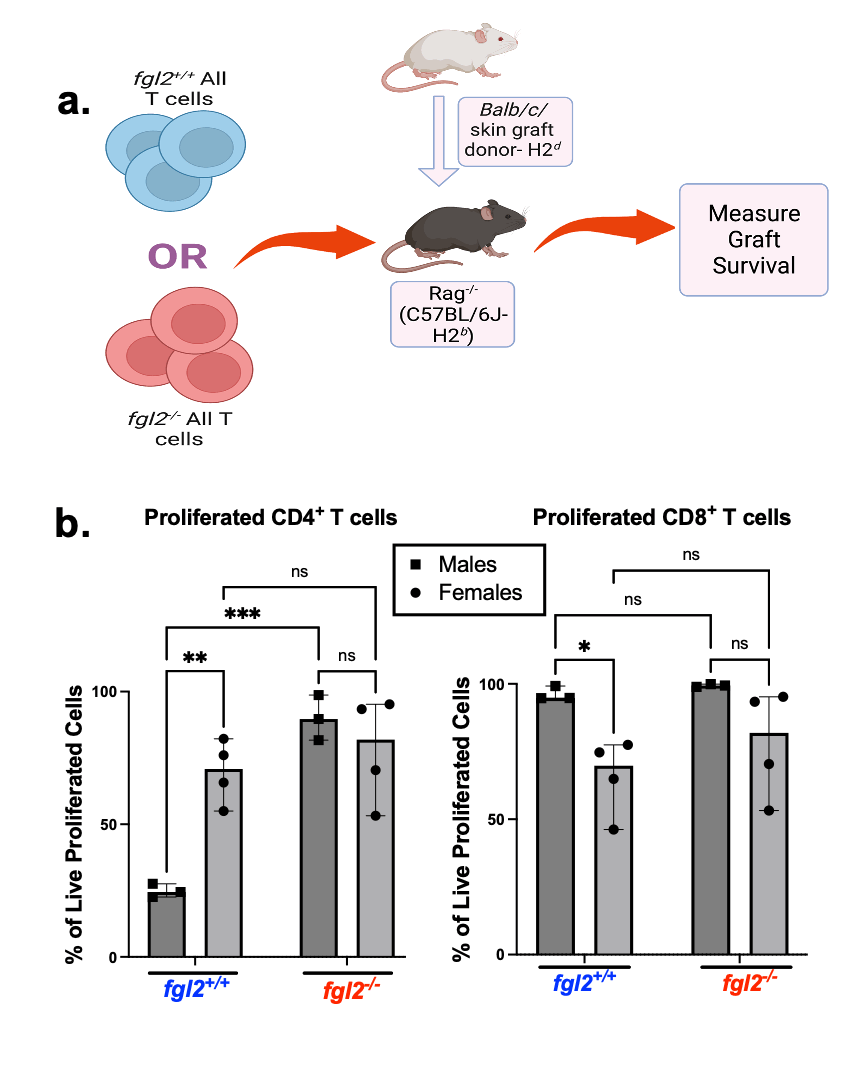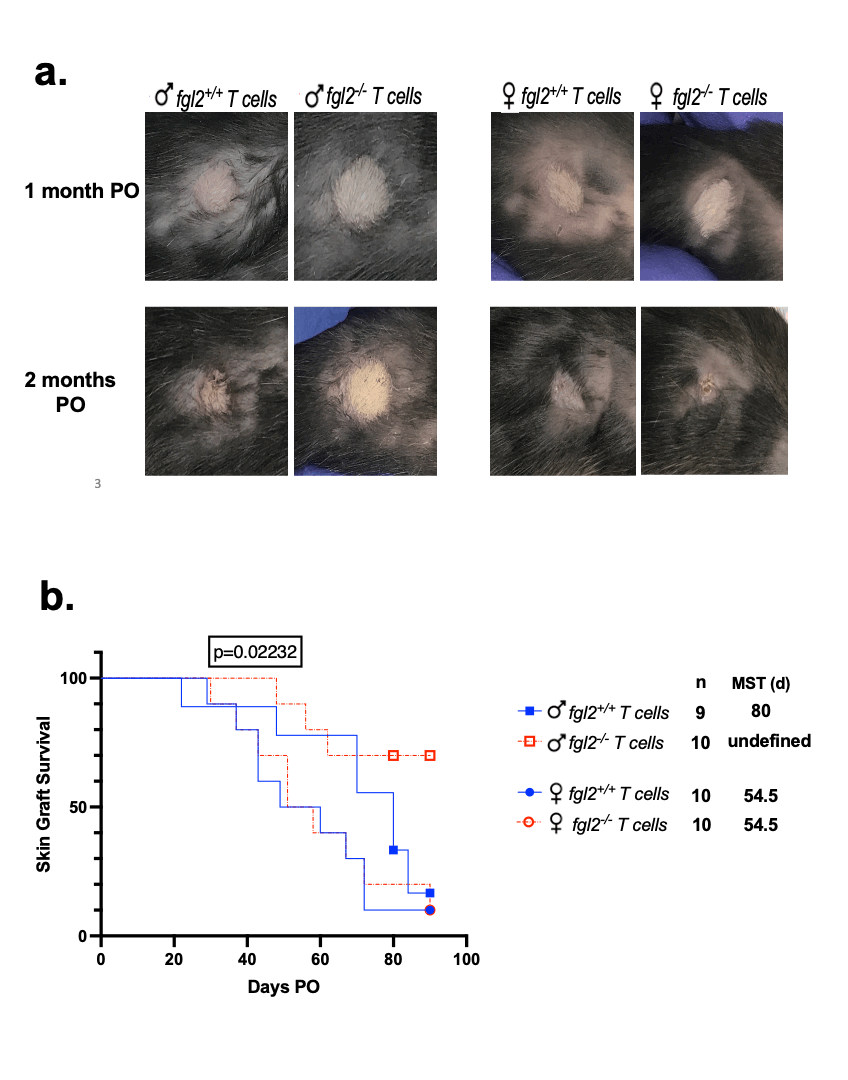Biological sex modulates the effects of the immunoregulatory fibrinogen-like protein 2 molecule on alloimmunity
Christina Lam1,2, Sajad Moshkelgosha1, Nadia Sachewsky1, Stephen Juvet1,2.
1Latner Thoracic Research Laboratories, University Health Network , Toronto , ON, Canada; 2Institute of Medical Science (IMS), University of Toronto, Faculty of Medicine, Toronto, ON, Canada
Latner Thoracic Research Laboratories.
Introduction: Various factors contribute to patients’ outcomes in solid organ transplantation. Among them, the effects of sex differences remain poorly understood and understudied. We know that females tend to mount more robust immune responses compared to males due to estrogen in the former and androgen in the latter. The immunoregulatory fibrinogen-like protein 2 (fgl2) molecule, expressed by regulatory T cells (Tregs), holds potential as tolerizing therapy. Here, we tested the hypothesis that fgl2’s effect on the allograft response is sex dependent.
Method: We first isolated T cells from males and female fgl2+/+ and fgl2-/- mice and measured their proliferation in vitro in response to plate-bound anti-CD3 and soluble anti-CD28. To investigate the influence of sex hormones in vivo, we also intravenously injected either fgl2+/+ or fgl2-/- T cells into Rag-/- (fgl2+/+) mice (C57BL/6J background; H-2b) and gave them skin grafts from Balb/c donors (H-2d) after 24 hours (Fig 1a). The sexes of Rag-/- recipients and Balb/c donors were matched to the T cells. Dressings were removed 7 days post-transplant and grafts were monitored for up to 90 days (Fig. 1a).

Results: T cell-intrinsic fgl2 expression inhibited CD4+ T cell proliferation in vitro, but only in male T cells (Fig 1b). In contrast, while female CD8+ T cells tended to proliferate less than male T cells, T cell-intrinsic fgl2 did not have a strong effect on CD8+ T cell proliferation (Fig. 1b). In the adoptive transfer experiment, fgl2 expression by the T cells did not affect graft rejection; however, female T cells rejected Balb/c grafts faster than male T cells (Fig 2a-b). In keeping with the in vitro data suggesting that male but not female CD4+ T cells can be regulated by fgl2, this observation suggests that T cell extrinsic fgl2 in the Rag-/- environment may have contributed to slowing graft rejection mediated by male T cells.

Conclusion: Our data reveal that fgl2 exerts its influence on allograft rejection in a sex-dependent manner and suggest that T cell-extrinsic sources of fgl2 can contribute to T cell regulation. Further investigation is now underway. Future studies of fgl2’s underlying mechanisms must incorporate biological sex as a variable.
The authors would like to thank the UHN Foundation for making this work possible, along with the staffs at UHN's Animal and Flow Cytometry facilities.
[1] Graft Rejection
[2] Allograft Survival
[3] Skin Graft
[4] Tolerance
[5] Sex Differences
